Хаас за Абу Даби
Ромен Грожан:
After some tough race weekends in the United States and Mexican Grands Prix, how fulfilling was it to finally get a double-points finish in Brazil to take some positive momentum into the season finale in Abu Dhabi?
It’s great, and that’s what we want for the last two races – double-point finishes. It’s great for the team. I think we had a really good weekend in Brazil. For the future, we need to understand what happened in Mexico and Austin as it just didn’t go to plan, but I was very happy with Brazil.
Regardless of the outcome in the Abu Dhabi Grand Prix, Haas F1 Team will have nearly doubled its point tally from last year. Are points scored the surest, most tangible examples of progress, or are there other elements of progress not everyone is able to see from the outside?
Yes, there’s plenty. There’s been a lot of improvement within the team, a lot of progress made. It’s not finished either. There’ll be more in the future. Whatever the outcome in Abu Dhabi, we can be proud of our season.
What were the team’s challenges this year?
The same as always, getting the tires to work, getting the best of the car. Also, creating a nice car, developing it over the season and focusing on 2019, as well. There’s been quite a few.
What were the team’s strengths?
I’d say the atmosphere. It’s a real racing team. We’re focused on getting the best of the car and driving fast. There’s a great atmosphere, and everyone on the team really does their best to get us to where we want to go.
Is there a particular moment from this season that stands out the most for you?
Obviously, Austria was the best-ever result for the team. For me also, I’d say Germany. I enjoyed the race. Those last 10 laps were pretty awesome.
When the season starts, Abu Dhabi seems very far away, yet here we are. Has the season gone by quickly?
Very quickly. The second part of the season has just flown by.
As you head into the offseason, how much “off” is there, or is that just a misnomer because preseason testing tends to arrive quickly?
You’ve got a month-and-a-half with very little on, except your own physical preparation. You’re not doing things like sponsor events or going to the simulator. It’s not too bad. No complaints there. I’ll take a week or two off, not doing much, but the rest of the time will be dedicated to physical preparation.
What is the first thing you’ll do to begin the offseason?
Probably take my wife out to a nice restaurant.
Yas Marina Circuit is a showplace. What makes it stand out on the Formula One schedule?
It’s the show, the overall race view, the fact you start in the day and finish in the night, and the fact it’s been the finale for a few years now. It’s a very nice venue with superb facilities.
With the race beginning in the late afternoon and ending at night, how much does the track change as the air and track temperatures cool and, in turn, how does that affect tire management?
It does change a little bit, and that’s why FP2 is very important in Abu Dhabi. That’s the only session where you’re going to get the same conditions as qualifying and the race. You do need to work there. It does make a big difference if it’s sunny or dark.
Yas Marina Circuit consists of three distinct sectors. How do you find a setup that suits all aspects of the track, or do you have to compromise in one section to take full advantage of another section?
It’s always about compromise and finding the best setup to go faster. You just have to find where you can find the lap time. That’s the key. You’re never going to be perfect in every corner, but you can try to be as good as you can over the lap.
Yas Marina is a smooth track and it seems that it takes a while for the track to rubber in. As the grip level increases over the duration of the race weekend, how do you determine where the limit is from Friday to Saturday to Sunday?
The most difficult thing in Abu Dhabi are the conditions between FP1 and FP2. You only actually have one session that is representative of the race and qualifying, and that’s FP2. FP1 and FP3 are warm, therefore you have an hour-and-a-half to determine the best setup.
Do you have any milestones or moments from your junior career that you enjoyed at Abu Dhabi?
I won there in GT1 (in 2010 with Matech Competition). That was my first-ever GT World Championship start, and the first race with that team, and we won. It was a pretty good moment taking the win and leading the championship.
What is your favorite part of Yas Marina Circuit?
I quite like the first part with turns one, two and three. It can be fun.
Describe a lap around Yas Marina Circuit.
Straight line to the first corner – it comes pretty quickly – a 90-degree left-hand corner, normally in fourth gear. Turns two and three are then flat out. You go down the hill, braking into (turn) six – very tricky braking turning into six, then straight away into (turn) seven. You need to be well positioned for the hairpin going down the backstraight. It’s tricky to get the car to turn. Long straight line, big braking for the chicane, and again you need to be well positioned between the left- and right-hand side corners. Then it’s another straight line on to (turns) 11, 12 and 13. It’s a triple chicane and as soon as you exit that part you go flat out then brake for turn 14, which is a 90-degree left-hand side corner. Flat out again into (turns) 16 and 17, two right-hand side corners flat out. As soon as you go out of (turn) 17 you have to brake again for (turns) 18. (Turns) 19 and 20, you’re going under the hotel, with a tricky exit out of (turn) 20. The second-to-last-corner is good. It’s high speed in fourth or fifth gear. Then the last corner is very tricky. It’s very wide on the entry phase with the pit lane on the right-hand side. It’s not easy to find a line. Then you go as early as you can on the power to finish the lap.
Кевин Магнусен: After some tough race weekends in the United States and Mexican Grands Prix, how fulfilling was it to finally get a double-points finish in Brazil to take some positive momentum into the season finale in Abu Dhabi?
It was good to come back into form, especially after a tough weekend in Mexico where we couldn’t find much performance. We had the pace in the car in Brazil, but we didn’t quite get the points that we deserved in terms of potential with the pace we had. So, it still wasn’t a perfect result, but nonetheless, it was good to get both cars in the points.
The two points you scored in Brazil with your ninth-place finish brought your season point tally to 55 points. This tied your best season-long point tally, earned during your rookie year in 2014 with McLaren. You finished 11th in points that year and you’re currently ninth in points with one race remaining. Do you feel this has been your best year in Formula One?
I think 55 points is good for a midfield team, but I still think there was potential for more this year. That’s both a positive and a negative. Positive, because we’ve showed we have great potential in the team to do more, but of course, it’s always disappointing not to get everything out of it as you could. We’re learning as a team and next year we’ll have even more experience. We’ll have learned a lot from this year and, hopefully, we can do a bit more next year.
Regardless of the outcome in the Abu Dhabi Grand Prix, Haas F1 Team will have nearly doubled its point tally from last year. Are points scored the surest, most tangible examples of progress, or are there other elements of progress not everyone is able to see from the outside?
As a team, we’re doing better and better. We’re learning as we go. For us, we’re such a new team, performing at such a high level already, sometimes we’re a bit short of experience for the performance levels being achieved. We’re fighting big, experienced teams like Renault, McLaren, Williams and, as a new team, sometimes it’s hard to avoid mistakes because of a lack of experience. I’d rather be in an inexperienced team overperforming than in an experienced team underperforming.
What were the team’s challenges this year?
It’s hard to point your finger at one thing. I don’t feel like it’s one issue that’s been reoccurring. I think we’ve just faced a lot of different challenges. That’s been a theme for the year. A lot of things that could go wrong, did go wrong. We haven’t had the margins on our side this year. A lot of things just tipped over to the wrong side to our disadvantage. Sometimes you have seasons like that. Generally, though, we’ve been strong all year. We’ve just had some missed opportunities.
What were the team’s strengths?
Definitely performance, in terms of pace. Our car has been very strong this year, especially in qualifying, a lot of times in the race, also. That’s been the biggest strength this year, our performance.
Is there a particular moment from this season that stands out the most for you?
I guess Australia stands out to me, obviously in a bad way. It was such a good position wasted. It was pretty heartbreaking. We did well to fight back from there. We lost 22 points in that race. To still come back and score 90 points, that’s pretty good.
When the season starts, Abu Dhabi seems very far away, yet here we are. Has the season gone by quickly?
Yes.
As you head into the offseason, how much “off” is there, or is that just a misnomer because preseason testing tends to arrive quickly?
The offseason is pretty long, but it’s definitely long enough. It’s a tough season with a lot of traveling. It’s not tough to race – that’s the enjoyable part. It’s all the traveling and going through different time zones, long flights and so on, that’s the tiring bit. It’s good to get some time off from that, but it doesn’t take long to start missing racing.
What is the first thing you’ll do to begin the offseason?
I’ll start training. You tend to lose a little bit of form during the year because you travel so much. You don’t get as much time to train as you’d like. Of course, you drive a lot, you race a lot in the car, you get fit from driving, which is the best kind of training. In terms of physical fitness shape, you lose a bit because you can’t train as regularly as you would in the offseason, so you try and build that back up in the offseason.
Yas Marina Circuit is a showplace. What makes it stand out on the Formula One schedule?
It’s a very glamorous race to go to as a spectator. It’s obviously a race that goes into the night, which makes it more spectacular. It’s the finale of the season, so it’s always a special race no matter where that is, but I think Abu Dhabi does a good job hosting it.
With the race beginning in the late afternoon and ending at night, how much does the track change as the air and track temperatures cool and, in turn, how does that affect tire management?
In terms of the race, it’s not too bad. Setting up your car, working on the setup over the weekend, it’s difficult because all the sessions are in different temperatures. What you get in FP1 is never what you get in FP2. It’s never comparable, and it’s the same with FP3 in relation to qualifying. It’s a challenging event in terms of building up your weekend.
Do you have any milestones or moments from your junior career that you enjoyed at Abu Dhabi?
I’ve only ever raced at Abu Dhabi in Formula One. I had my first test in a Formula One car there back in 2012. That’s obviously a good memory.
What is your favorite part of Yas Marina Circuit?
I’d say sector one is enjoyable, but probably with this car it’s going to be quite easy flat, less challenging. That makes sector three the most challenging now.
Describe a lap around Yas Marina Circuit.
Yas Marina’s a pretty good track. Obviously, the challenge is that you’re racing in the night but practicing during the day. The track is hugely different between qualifying and then the race, when it’s dark. It’s a low-speed track, so it can be difficult to get energy into the tires. Hopefully, we can do better than last year when we struggled a little bit with tires.
Гюнтер Щайнер: After some tough race weekends in the United States and Mexican Grands Prix, how fulfilling was it to finally get a double-points finish in Brazil to take some positive momentum into the season finale in Abu Dhabi?
It was very good, especially after the bad result in Mexico. It was good for the whole team to score double points and, hopefully, we can take this momentum into the last race and have a good result there, as well.
Abu Dhabi is the season finale, and it’s also the finale of Haas F1 Team’s third year. After having to build brand new racecars in back-to-back seasons under two sets of very different rules packages in its first two years, how did this year compare to those previous years where you raced under fairly consistent technical regulations?
There is not a big difference. It’s more down to the design and aero people who have to adapt, but you plan for it and you do it. For sure, consistency sometimes makes it easier, but we’re not here to make life easy. We’re here to perform, and if you want to perform, you always work hard with the maximum of whatever regulations you are given.
Were there any key learnings from last year that you applied to this year, be it in car construction, personnel or even race weekend protocols?
There is never one key thing that you learn. You just grow as a team and get better by doing it. The only thing which helps is time. For sure, you should be better in year three than in year two, and we were.
The team’s understanding of the Pirelli tires, particularly each compounds’ respective operating windows, seemed to be the team’s biggest leap forward. What allowed the team to perform better in this area?
It’s just experience. You learn, but by no means have we finished learning about the tires. What works at one track may not work at another – not only because the compounds and tires change, but also because the track surface changes. Even if we have the same tires from one race to another, it doesn’t mean they perform the same because the track surface and temperatures are different. There are so many things that go along with this, so you will never have a perfect understanding, but you get better with every race.
Regardless of the outcome in the Abu Dhabi Grand Prix, Haas F1 Team will have nearly doubled its point tally from last year. Are points scored the surest, most tangible examples of progress, or are there other elements of progress not everyone is able to see from the outside?
The points are always one thing that everyone can see what we do but, in theory, we should have more than double the points.
What were the team’s challenges this year?
Like every year, our target is to improve. The challenge was to improve from last year’s result. Racing’s challenges are different every weekend and are mainly driven by your competitor, how good they are. The challenge is always to beat the other ones, or as many as possible.
What were the team’s strengths?
We are getting a better understanding and we have more experience. This just comes with time, so I hope next year will be even better because we’ve had more time and have gained more experience.
The way Haas F1 Team is set up is unorthodox, at least by Formula One standards. Does the team’s continued and increased level of success validate Haas F1 Team’s approach?
I wouldn’t say our approach is better than the other setups, but it seems to be working for us. It’s difficult to prove it right or wrong because we cannot do things the typical way. For sure, it’s not hindering us from having good results.
Is there a particular moment from this season that stands out the most for you?
From the negative side, losing all of the points in Australia when we had two pit stop failures. The positive would be finishing fourth and fifth in Austria.
When the season starts, Abu Dhabi seems very far away, yet here we are. Has the season gone by quickly?
Too quick.
As you head into the offseason, how much “off” is there, or is that just a misnomer because preseason testing tends to arrive quickly?
The offseason is getting shorter and shorter because next season we start a week earlier with the Australian Grand Prix, so there is very little ‘off” in the offseason. I think the only week, and I would say it is half off, is the week between Christmas and New Years.
There has been some discussion of a winter shutdown around the holidays. What are your thoughts on this and how would it affect your car build schedule?
It’s not a bad suggestion to have the week between Christmas and New Years completely off. It would affect the car build schedule, but if you know early enough, you just plan for it like we do with a lot of other things. A few years ago, it was not even thinkable to have two weeks off in the summer, but now we do and it’s fine. We can adapt pretty quickly.
As we look ahead to 2019, how different is next year’s car in terms of this year’s car design, and with some elements being simplified – specifically, the front wing, front brake ducts and bargeboards – what new areas of the car are being scrutinized for development?
Development is all over the car. There is not one part being scrutinized more than another. The biggest gains you can make are with the new parts – the front wing and the brake ducts – especially in the beginning. Otherwise, you just focus on getting the best out of everything aerodynamically.



















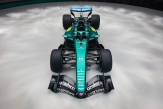
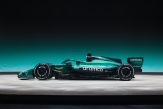
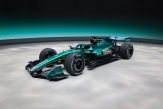
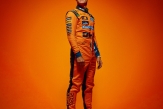
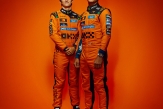
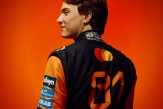
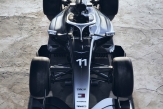
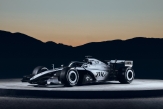
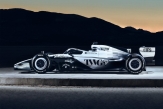
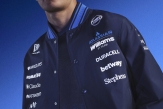
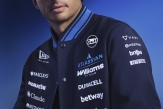
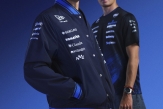
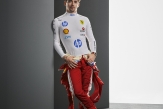
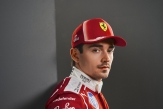
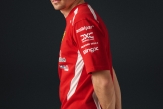
.jpg)
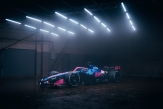

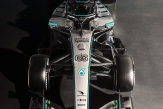
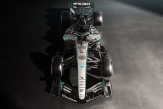
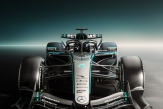
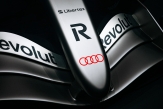
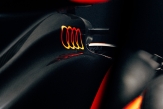
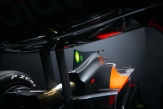
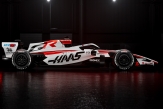
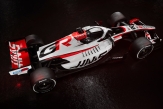
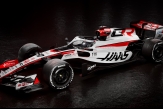

04/03/2026 от Огнян Тенчев (drJeckyll), няма коментари